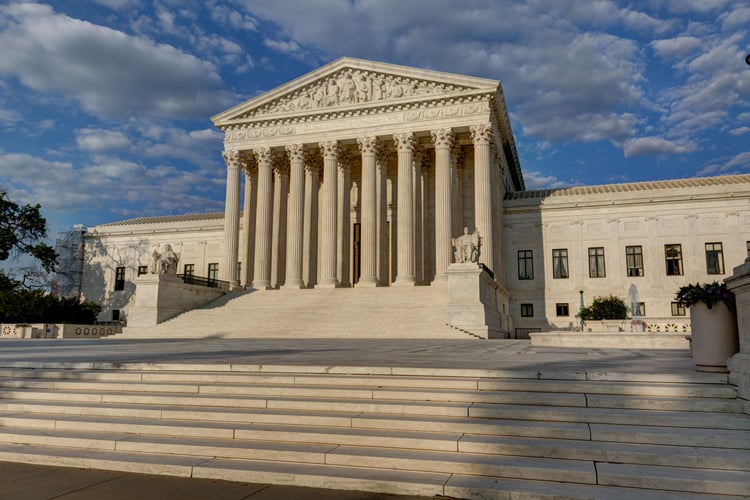Alito defends 'shadow docket,' says SCOTUS is wrongly portrayed as 'dangerous cabal'

Image from Shutterstock.
U.S. Supreme Court Justice Samuel A. Alito Jr. used a law school speech Thursday to defend the U.S. Supreme Court’s "shadow docket" of emergency orders and summary decisions.
In a livestreamed speech at the University of Notre Dame’s law school, Alito addressed criticisms and took issue with the shadow docket term. He prefers the term “emergency docket.”
Law.com, Law360, the New York Times and the Washington Post are among the publications with coverage. How Appealing links to additional stories here and here.
The “catchy and sinister” shadow docket label has been used to portray the court “as having been captured by a dangerous cabal that resorts to sneaky” and improper methods to get its way, Alito said. “This portrayal feeds unprecedented efforts to intimidate the court” or damage it as an independent institution.
Alito said it’s true that the Supreme Court is issuing more emergency orders in recent years, but it’s because the court is receiving more applications.
“We do not file these emergency applications,” he said. “Parties file them, and when they file them, we are obligated to act on them. Are we supposed to impose a quota?”
He also addressed criticism that shadow docket rulings are “issued in the dead of night.” Late rulings are attributable to emergency applications with short deadlines for review, he said. It’s “rank nonsense” to suggest that the court was hoping that the media wouldn’t notice the decisions, he said.
During the speech, Alito addressed three recent emergency rulings in which the court’s liberal justices dissented. One ruling declined to block the controversial Texas abortion law that bans abortions after about six weeks of pregnancy.
It’s “false and inflammatory” to suggest that the Supreme Court nullified Roe v. Wade when it declined to block the Texas law, Alito said. He noted that the court majority said its decision was based on procedural grounds, rather than any conclusions about the constitutionality of the law. In fact, he noted, the opinion said the challengers had “raised serious questions” about the law’s constitutionality.
See also:
ABAJournal.com: “Senate Democrats criticize SCOTUS ‘shadow docket’ in hearing; Republicans see attempt at justice intimidation”
ABAJournal.com: “The Supreme Court’s ‘shadow docket’ is drawing increasing scrutiny”
Write a letter to the editor, share a story tip or update, or report an error.


